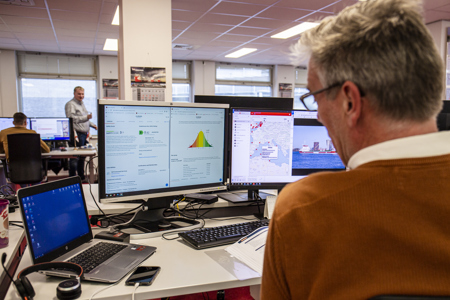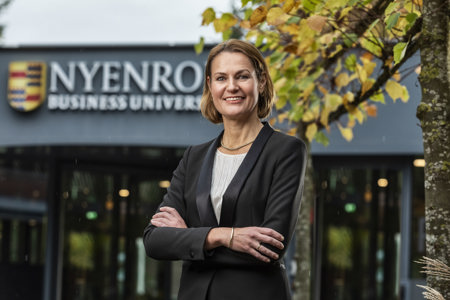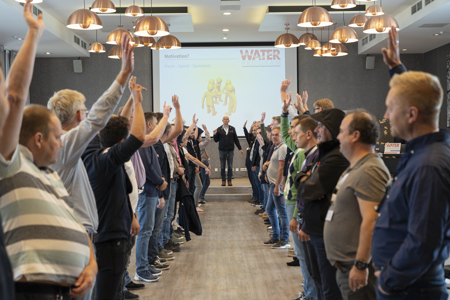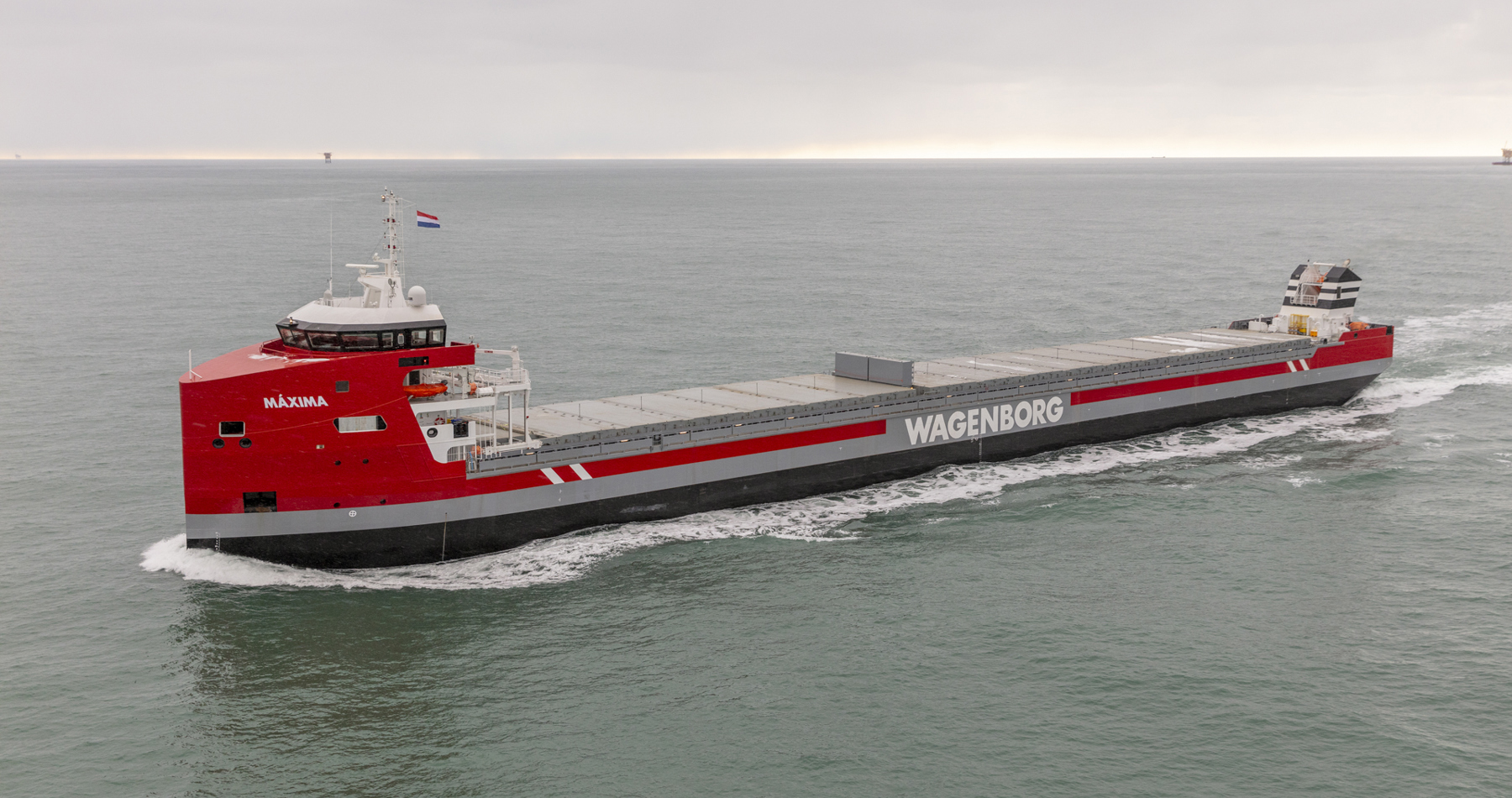
On a sustainable transit for and to future generations
Continuity has played a major role at Royal Wagenborg since its founding in 1898 and is therefore closely interwoven with today’s concept of ‘sustainability’. Vuursteen: “We are all passing through and want to leave everything tidy for the next generations. This applies not only to our company, but also to the world around us.” Seyger: “In the days when sustainable was still a more general word, this meant ‘little transient’, according to Van Dale. Reasoning the other way around: unsustainable is therefore transient. And this does not suit Wagenborg, which as a family business has been “passing the company” to future generations for decades.“
License to operatie
Although a sustainable way of doing business is in Wagenborg’s DNA, the course Wagenborg wants to take towards the future has recently been made explicit. Vuursteen: “From a business perspective, transparency in the field of sustainability is our ‘license to operate’. If you continue on the beaten track for too long and do not follow new developments, you will fall behind as a company.” Seyger: “Good entrepreneurship is a core value of Wagenborg. Also consider issues such as good working relationships or a safe working environment. That too is part of sustainability, just like the environment. Actually, it is just a natural part of corporate social responsibility, to which we as Wagenborg are of course happy to contribute.”
"Sustainability is part of our family business that has been passing the company on to future generations for decades."
Jeroen Seyger - CFO Royal Wagenborg
Increase cargo capacity and reduce installed power
The fact that Wagenborg is already doing a lot to promote good entrepreneurship and minimizing the impact on the environment appears to be correct when we take a closer look at Wagenborg’s fleet development. Vuursteen: “Wagenborg was one of the first Western European shipowners to take a critical look at the required engine power per ship around 2006. While we had equipped our 9,000 tonners with a 5,280 kW engine, we decided to increase the cargo capacity and reduce the engine power. When we saw the m.v. Beatrix was the first in a series of 14,600 tonners with a 4,500 kW engine, we were told it was crazy.” Seyger: “We were at a time when the discussion about climate was starting to emerge. Consider, for example, “An inconvenient truth” by Al Gore. Unconsciously, this must have played a role.” Vuursteen: “We have further developed the philosophy of the Beatrix into our R-series built in 2013 at Ferus Smit. These ships have the same 4,500 kW engine, only the payload of 23,000 tons is a further 57% higher, without the ice class 1A ever being endangered. Also new to the R-series is the hull shape where we have replaced the bulb with an axe-shaped bow. You can still see this adaptation today in our EasyMax ships built at Niestern Sander, where we have also integrated the accommodation in the fore ship to improve aerodynamics. With the Easymax ship type, we are working on an optimal ship design when it comes to sustainability. It is not without reason that this ship has the undisputed leading position in the Energy Efficiency Design Index ranking. The next step is sailing with other propulsion systems. ”
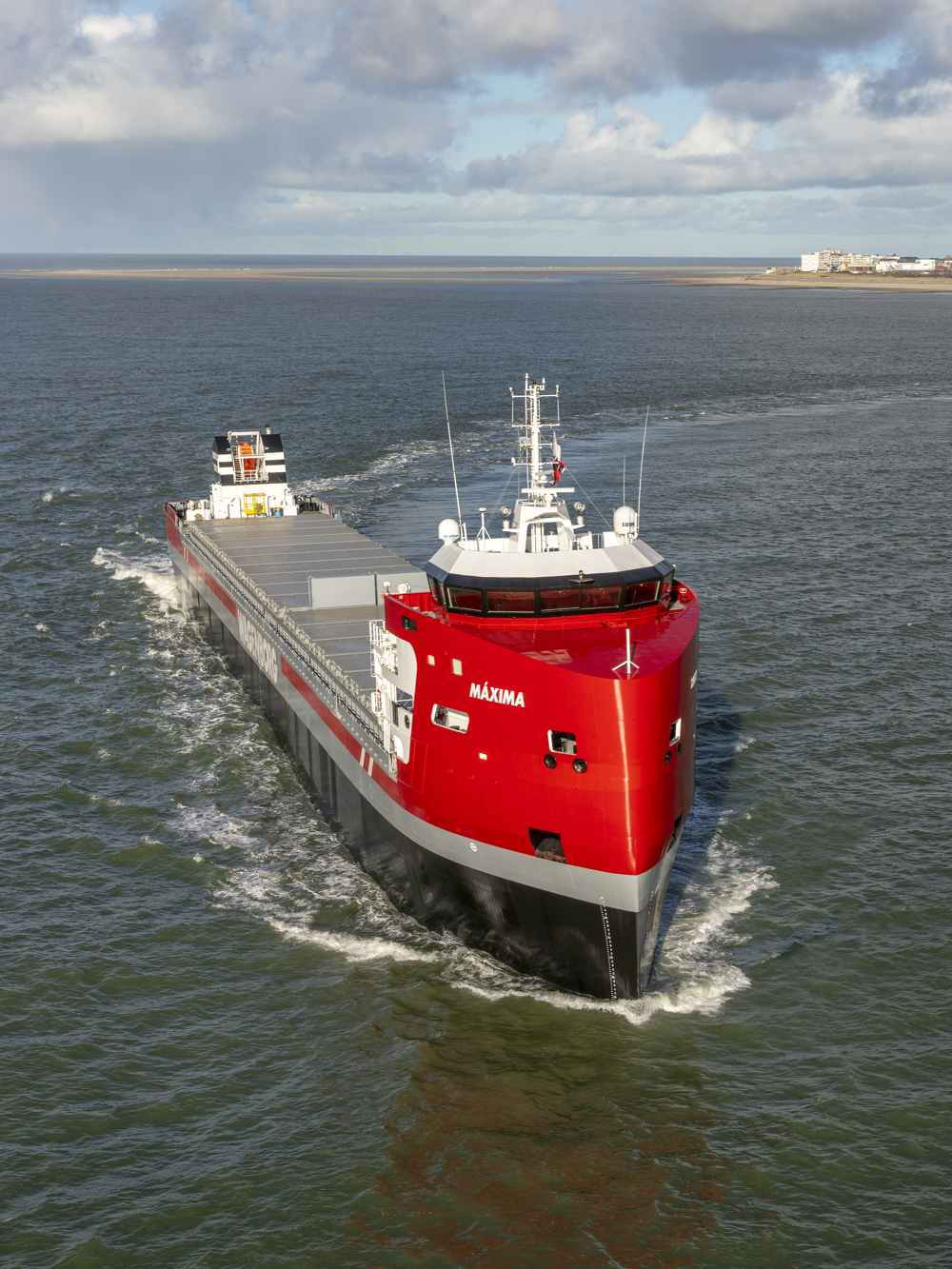
A double business case
Wagenborg is now pursuing two parallel tracks: on the one hand, it focuses on the more efficient use of the existing fleet. On the other hand, plenty of research is being conducted into new technologies and fuels. Seyger: “As Wagenborg, we are not able to independently develop a completely new propulsion system. We depend on suppliers and what the market offers us. We can, however, participate in various consortia and contribute to pilots, whatever we do. In addition, we strive to use our current fleet as efficiently as possible. Whether it concerns fuel savings, operations, digitization or maintenance: every gram of CO2 reduction is important to us. This is actually a double business case: both environmental and financial savings; especially when both things come together in an “emission trading system”. Let me be clear: we are in favor of CO2 pricing on the condition that the proceeds make it possible to invest in making the fleet more sustainable. This is the fastest way to progress as a sector.”
Greening ad remaining profitable
Vuursteen: “Our fleet and the growing focus on sustainability is an opportunity for Wagenborg. If I compare our CO2 footprint per ton of cargo transported per mile against the bar of the market, I can conclude that we are definitely not behind, and then I am expressing myself carefully.” But the key to success does not lie solely with the shipowners. It is necessary for every link in a supply chain to take responsibility. Seyger: “We have to work together to become more sustainable. And yes, more sustainable transport costs money - especially in the beginning. Although financing is a challenge for the entire market, we expect our financiers to remain willing to participate in sustainable investments. Fortunately, we notice that our customers are enthusiastic about working together on sustainable initiatives. I would therefore like to call on them to work with us to see to what extent short sea shipping can be an attractive alternative for them to transport by road or rail. Shipping is the cleanest way of transport. In any case, the biggest challenge remains to make a company greener while remaining profitable.” Vuursteen: “If we have all shaped the energy transition together, I want to be able to say that we have made an active contribution to the challenges we now face. Who knows, we might be sailing with ships that we don’t even know about yet. Or maybe one day we will go back to the beginnings of my great-grandfather, who sailed with the “Broedertrouw” on sails, had 0% emissions and had a thriving business. “
"Maybe one day we will go back to the beginnings of my great-grandfather, who sailed with the ‘Broedertrouw’, had 0% emissions and had a thriving business."
Egbert Vuursteen - CEO Royal Wagenborg
